Australia is suffering its worst drought in living memory, as dozens of bushfires are blazing out of control. It’s hard to believe that it’s winter “down under.” Summer is yet to come.
Australian Prime Minister Malcolm Turnbull on Sunday committed 1.8 billion Australian dollars ($1.3 billion) in relief funds for farmers, whose livelihoods are disappearing down the cracks of their dry, barren land. The very next day, he announced he was dropping a national policy to cut carbon emissions from the energy sector that was supposed to help Australia fulfill its obligations under the Paris climate change agreement.
The vast majority of Australians accept human-induced climate change is real and scientists have linked the current record-slashing drought to global warming, yet the subject is still highly controversial in Australian politics, and climate change skepticism is still given political space.
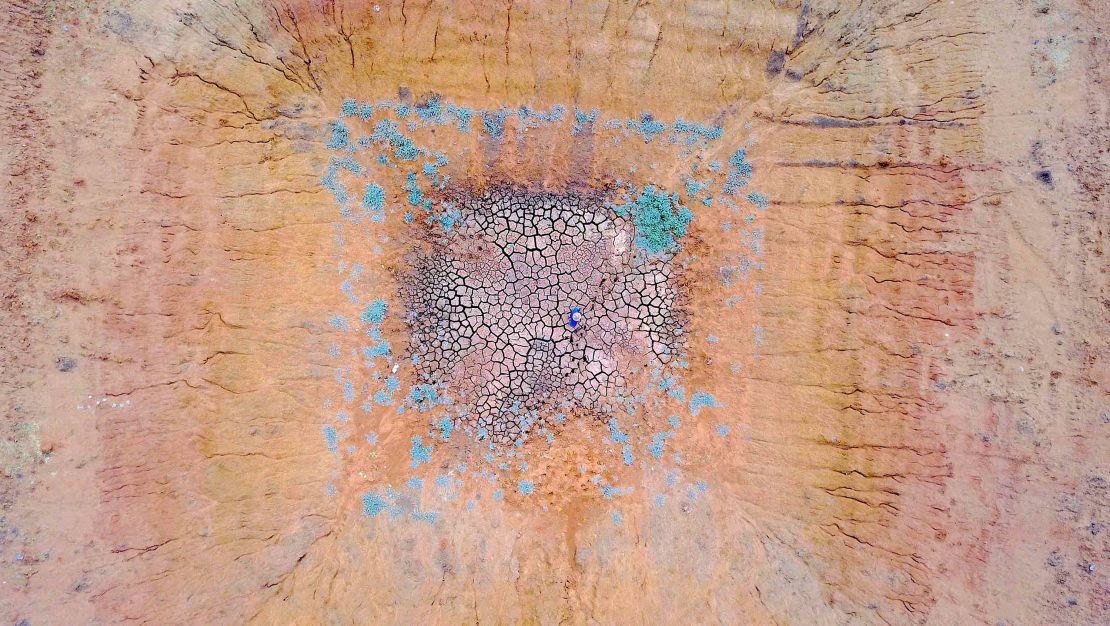
Turnbull is now facing a renewed leadership challenge from MP Peter Dutton. If Turnbull loses, he would be the third Australian prime minister to be ousted over climate policy in the past decade. A Dutton-led Australia would mean even less hope for those who want action on climate change.
Peter Dutton: The immigration hardliner who could be Australia’s next PM
It’s difficult to comprehend why Australia – a wealthy, developed nation that has long experienced crippling weather events – has failed time and time again to get a coherent climate change plan together.
All the signs are there. The UNESCO heritage-listed Great Barrier Reef, a 2,300-kilometer stretch rich in biodiverse marine life, is under threat, having lost more than half its coral in two mass bleaching events in 2016 and 2017.
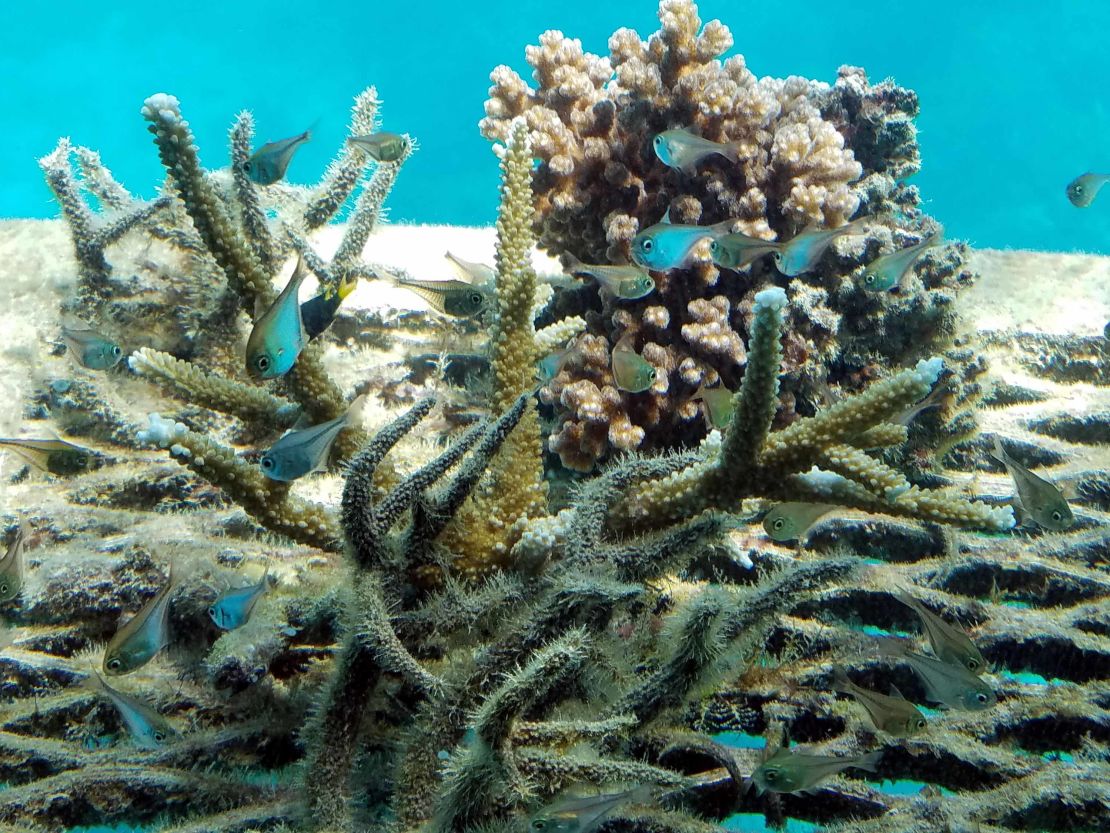
Australia clocked record heat in the first half of this year. The whole of New South Wales, the country’s most populous state, is now 100% in drought, with some areas seeing less than 10mm of rain in July, right in the middle of winter.
It’s so dry that animals are being forced to migrate – a group of emus recently swarmed the town of Broken Hill, running down the street and gate crashing football matches in search of water and food, the Australian ABC reported.
Political survival
Political wrangling is one reason for the slow progress. Turnbull scrapped his climate policy in order to ensure his survival as prime minister.
“The history of Australian politics is that climate policy has proven in the past to be so controversial that it has resulted in prime ministers losing their jobs,” said Bob Ward, policy director at the Grantham Research Institute at the London School of Economics.
“Australians can see for themselves what’s going on at the moment. They’re facing a series of weather events linked to climate change – droughts, heatwaves, fires – and Australia’s scientific communities have been telling politicians for a long time what’s going on.”
Instead of talking about global warming, the ruling Liberal Party’s conservative faction, that has long resisted climate action, has framed the debate around electricity prices. Dutton said Tuesday that should he became leader he would set up an inquiry exploring why power was so pricey.
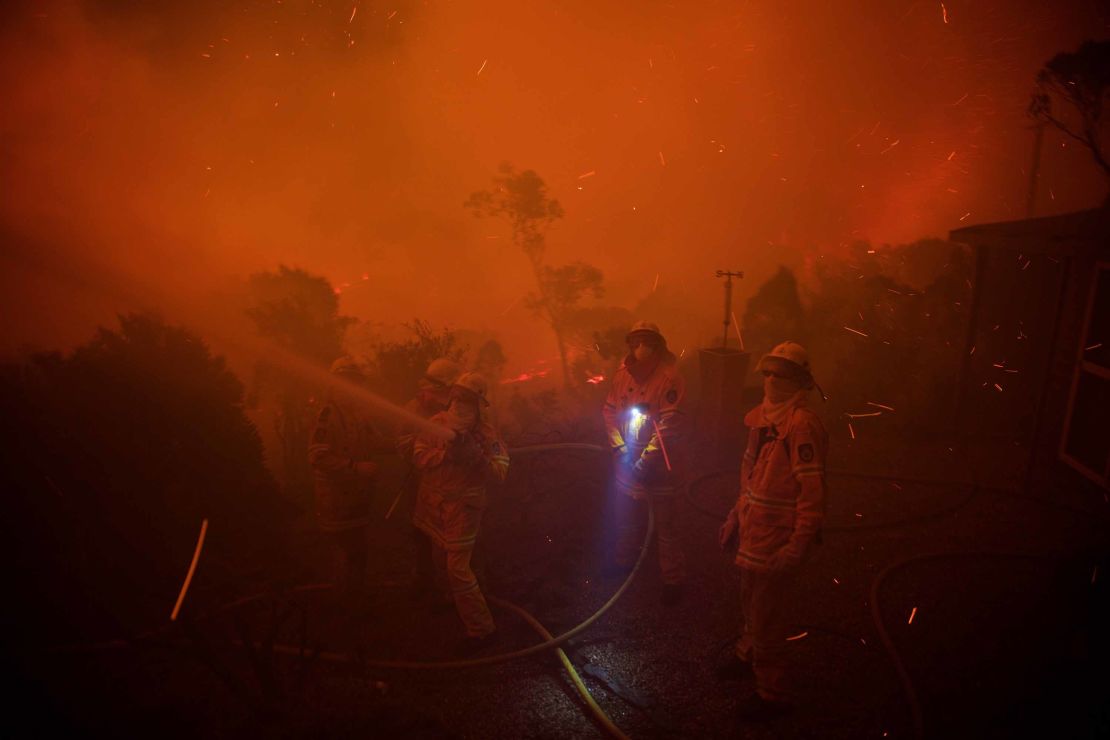
A study published in the journal Nature Climate Change found that Australians who identify with the country’s conservative party are more likely to be predisposed to climate change skepticism. Of all 25 nations studied, only the United States had a stronger correlation between political ideology and belief in global warming.
It also found that link between political leaning and climate change skepticism was typically present in countries with strong fossil fuel industries, including the US, Australia, Canada and Brazil, indicating the power of industry lobbying.
Much of that lobbying happens through think tanks funded by the mining and energy industries, said John Cook, from the Center for Climate Change Communication at George Mason University.
“The broad picture in Australia is that in the ’80s the issue was much less polarized. It was in the early 1990s that conservative think tanks began attacking climate science for ideological reasons, because the consequence of climate change meant regulating industry,” Cook said.
That combination of ideology and climate change skepticism is most apparent in former prime minister Tony Abbott, now a backbench MP but the most vocal critic of Turnbull’s carbon reduction policy.
Abbott pointed to the US President Donald Trump’s announcement to withdraw the US from the Paris agreement as a reason for Australia to scrap its own emissions targets, saying last week, “it’s time to get out of Paris.”
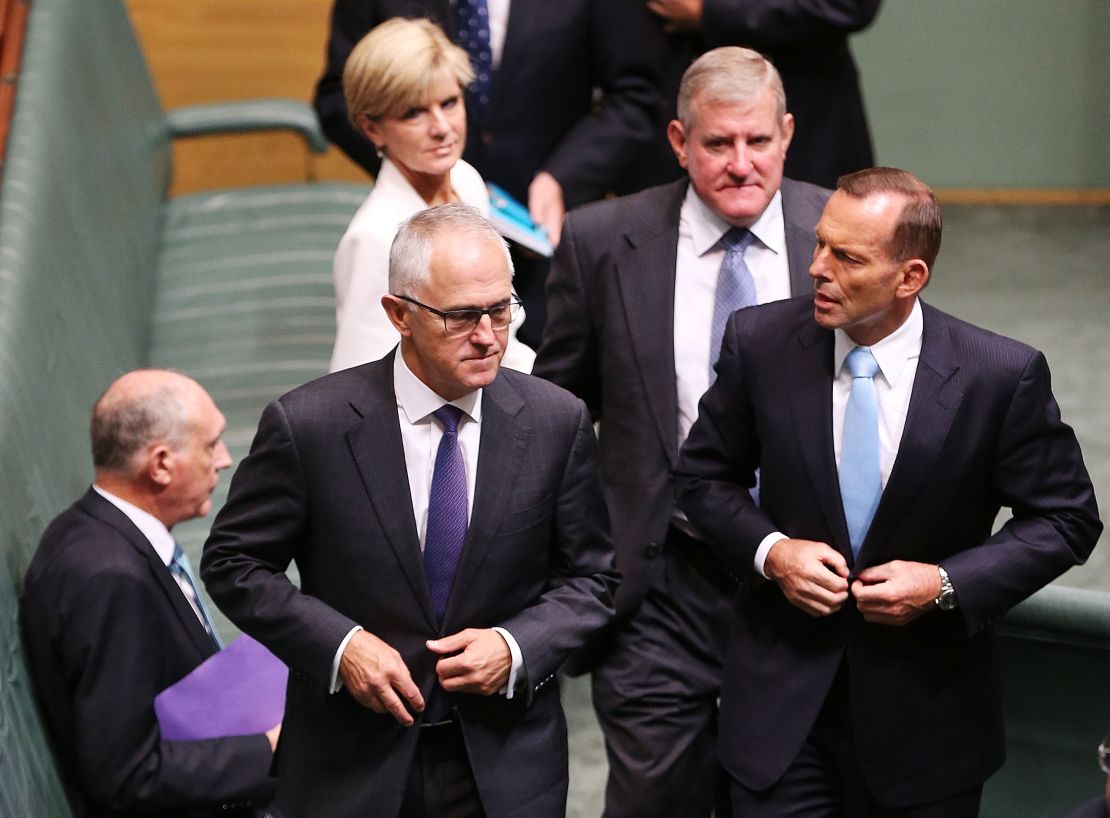
Abbott gave a speech to a climate-skeptic think tank in London last year, in which he made the remarkable claim that climate change was “probably doing good, or at least, more good than harm,” and likened climate change action to “primitive people” who killed goats to appease volcano gods.
He has even called for new coal power stations to be built by the federal government.
Australia’s coal addiction
Turnbull’s energy policy was aimed at bringing the country in line with its commitment to cut carbon emissions by 26% by 2030, from 2005 levels, as Australia pledged in the Paris climate change agreement.
Australians support the agreement and climate change action more broadly – until it hits their wallets, polls show.
A Newspoll survey published in The Australian newspaper in October 2017, for example, found almost half of those polled would support dropping out of the Paris climate change agreement if it lowered energy prices.
“(Climate action) has taken too long because of the political influence of the coal industry, and as a result … a significant rump of the current government either don’t believe in climate change or don’t believe Australia should do anything,” Ian Lowe, Emeritus Professor at Griffith University’s School of Science, told CNN.
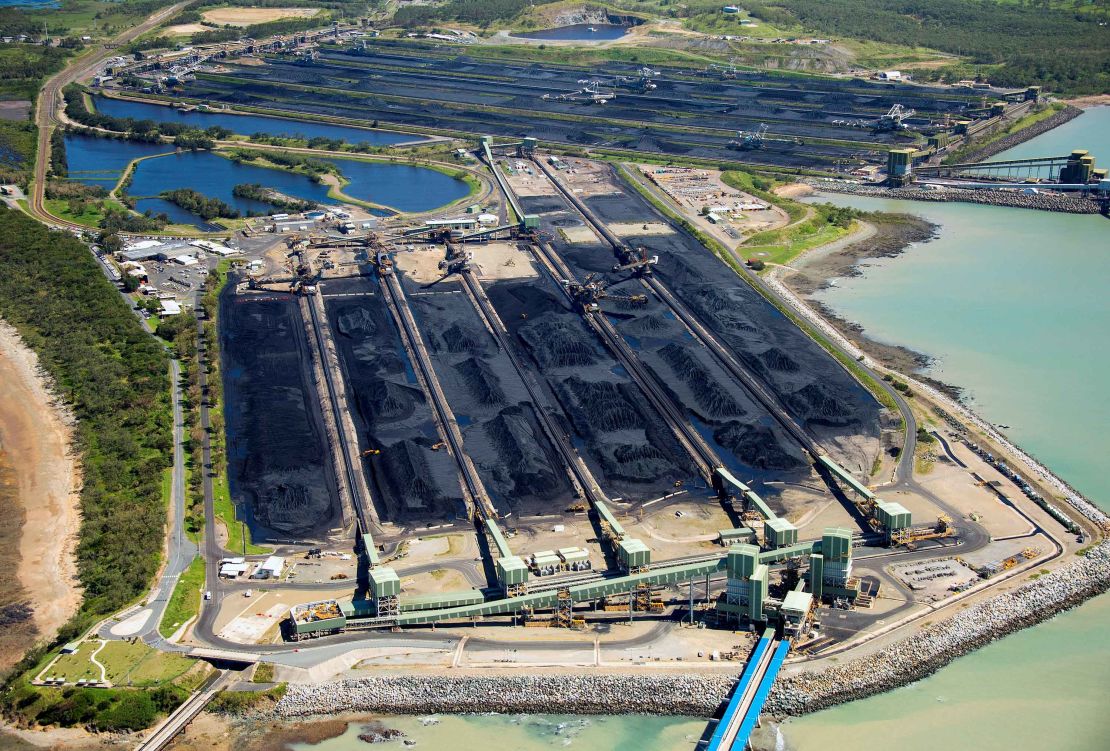
Australia is regularly referred to at the world’s biggest coal exporter, and it depends heavily on the fossil fuel in its own energy mix, as well as for jobs and economic prosperity. Mining has contributed significantly to the country’s record-breaking 26 consecutive years of economic growth.
Much of Australia’s coal is exported to China, to fuel the Asian powerhouse’s rapid development. But even China is starting to wean itself off dirty fossil fuel and is looking increasingly to renewable energy.
Australia is getting a renewable energy program off the ground, but a lack of political will has meant progress has been incredibly slow, said Harald Heubaum, an energy and climate policy expert at the University of London. The huge potential in the sunny country for solar energy is still largely unrealized.
“So a question Australia could ask is, does it really just want to be a quarry for Asia? To take the coal and gas and iron ore, and whatever precious metals it can find and export them?” Heubaum said.
“Or does it want to diversify away from that?”
CNN’s Ben Westcott contributed to this report.



